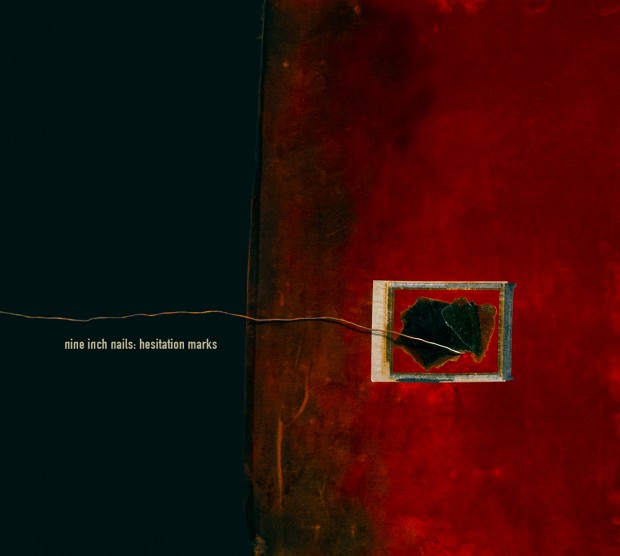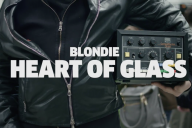In the final minutes of the hour-long adventure, the album ends with saxophone blasts. Jarring and a bit out of place the first time, yes, but honestly since that first listen, I haven’t heard them again without straining or watching the clock. And so goes the experience of Hestitation Marks—a lot of familiar, punctuated with strange new sounds. What’s this? A funky hip-hop beat? A 60’s garage-punk guitar riff? Ultra-pop vocal chorus? Check. Check. And check.
Oddly, while so much new blood is being mixed in, the album sounds decidedly familiar. There are musical hints and reminders of past recordings throughout. As Trent Reznor has said in interviews, this is an reflective album—down to the literal choice for typography and artwork on the packaging—everything looks back, even if the whole while he is running full-steam ahead.
But what is most important is that all of Reznor’s history lessons have just served as fuel. He (and the massive team assembled to put this music out) knows what works, and it shows. And while he is back on a major label record company again (Columbia Records)—and has a team of industry people working like a machine to market and sell this work—it still all feels relatively personal. It honestly seems like the culmination of one man’s finely-honed effort put forth. And that is key.
What an epic journey it has been for Trent Reznor. And like any brilliant roadtrip, this album starts off familiar and ends up in uncharted places. Granted, it does take a few listens to completely digest, but stick with it.













1 Comment
After a first-pass through the record (having only heard Came Back Haunted on the radio a bit), I definitely agree with the 8.5 ratings and the fact that they’re the stand-out tracks on this new record.
There are some stretches here and there (funk riffs, unabashed pop-rock chord progressions), but at core this is a NIN record and it sounds like it. The dissonance, minor chords, creepy pianos, and unrelenting drum machines are all there. What’s missing though, is the emotional and sometimes visceral connection I felt with their/his earlier work.
Saw some recent quote where Trent said something to the effect of, “I’m not the same as I was in 94, are you?” Well, yes and no. I may wear less black these days, but classics like Head Like a Hole, Wish, and Burn still make the hair on the back of my neck stand up. Where’s the power, the lust, the hate?